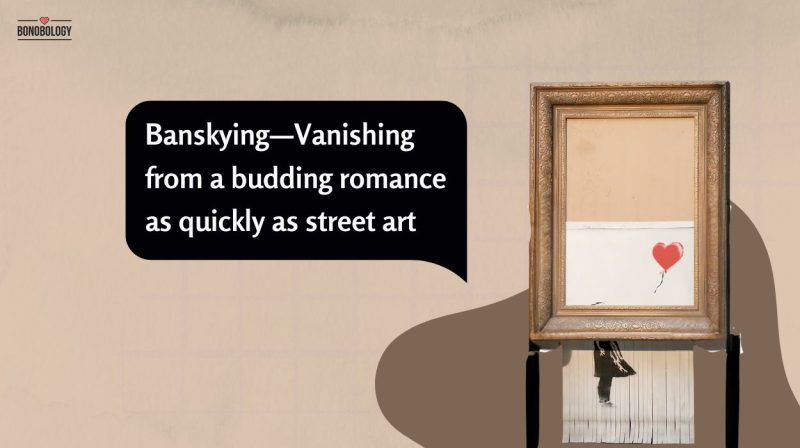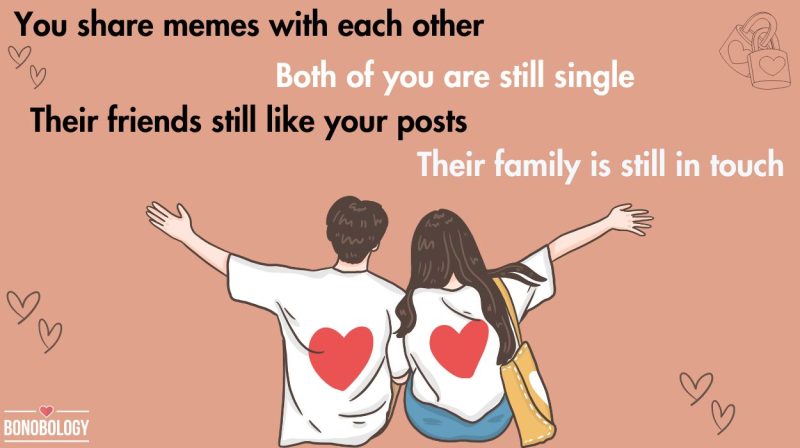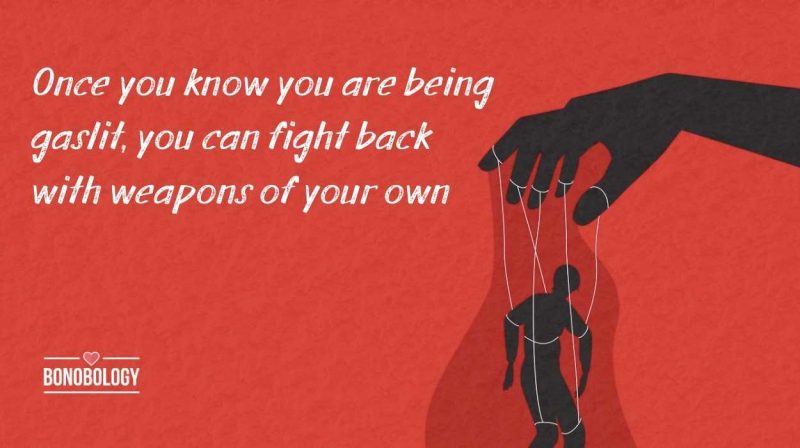The discourse around gaslighting, a form of psychological abuse that makes a person question their sanity, reality and memories, is largely focused on the damaging impact it can have on the victim. While that is vital for enabling the victim to break free from the clutches of manipulation, the spotlight also needs to be shone on another critical aspect of this phenomenon – why some people feel the need to exercise that degree of control over another person. That’s the question we seek to address here by decoding the gaslighter personality.
So, what is a gaslighter personality? Are there any tell-tale characteristics of a gaslighter that you can watch out for to safeguard yourself from this form of psychological abuse? Is there a gaslighter personality disorder or is this tendency triggered by something entirely different? Is this form of manipulation always shrewdly calculative or can a person resort to unintentional gaslighting?
In this article, psychotherapist Dr. Aman Bhonsle (Ph.D., PGDTA), who specializes in relationship counseling and Rational Emotive Behavior Therapy, writes about the gaslighter personality to unravel its myriad layers.
What Is A Gaslighter Personality?
Table of Contents
A gaslighter is someone who seeks to establish control over another person by making them question and second-guess their every thought. The gaslighter personality is, thus, characterized by a controlling nature. People with such tendencies want those around them to behave as per their liking, beliefs and their idea of right and wrong. That’s because any aberration from it is in direct conflict with their overwhelming need to be in control of situations, relationships and circumstances.
One of the key traits of a gaslighter is that they’re extremely manipulative and know exactly what to say to make the other person question the very basis of their perception. They also understand who to sway and how. People who use malignant manipulation to exert control over others, be it through intentional or unintentional gaslighting, find the most susceptible targets in empaths.
Empath gaslighting is easier to pull off owing to the perceptive, sensitive and self-sacrificing nature of the victims. Empaths often find themselves trapped in such unhealthy relationships, allowing a narcissistic manipulator to skew their perception of reality because their perceptiveness leads them to see and believe in the alternative reality being created by the gaslighter.
Related Reading: 20 Gaslighting Phrases In Relationships That Kill Love
Empath gaslighting can also continue unabated because these people are wired to see the good in others. Even if the empath can recognize a gaslighter’s harmful actions and words, they can also see a better side of their personality, which they see as the manipulator’s true personality. They stay on, clutching to the hope that this better side will ultimately prevail. Empaths also truly believe that they can help a narcissistic gaslighter reclaim their higher self.
Besides, they tend to be self-sacrificing and despise disharmony, conflict and confrontation in any form and degree. For these reasons, they are prepared to minimize their own needs and desires for the sake of others and for keeping peace in a relationship.

Someone with a gaslighter personality has a radar, so to speak, to detect empaths who are most vulnerable to fall prey to their manipulative ways. The empaths, in turn, have an affinity for such manipulative people. It’s a match made in hell, one that keeps the victim trapped for years.
The making of a gaslighter personality
No one is born with a gaslighter personality disorder. Like most other aspects of our personalities, a tendency to gaslight and manipulate others is also developed owing to our childhood experiences. The traits of a gaslighter can be most commonly seen in individuals who as children were:
- Exposed to gaslighting: A gaslighting personality is most commonly imbibed by learning from a role model. Perhaps, as a child, the person has seen one parent do it to another to get what they want or a sibling to do to another sibling. Or their parents or siblings did it to them. Parents gaslighting their children by telling them that their goals are not valid, their romantic affiliations are meaningless or their hard work amounts to nothing is the most common form of this manipulation. Since that’s how these children have seen people behave in their most intimate relationships, to them manipulation in relationships becomes a normal approach to being in control, be it with their romantic partners, friends or their own children
- Spoilt by their caregivers: Children who are given everything on a platter and spoilt silly by their parents or primary caregivers also grow up to develop the gaslighter personality. Since all their demands were met during their formative years, they don’t know any other way of existing and may find it hard to take ‘no’ for an answer. This sense of entitlement, then, drives them to have their needs and desires met at all costs, even if it means manipulating someone close to them
Related Reading: 6 Types Of Emotional Manipulation And Expert Tips To Recognize Them
Characteristics of a gaslighter
The traits of a gaslighter are rooted in a subliminal need to find ways to control another person and get them to do their bidding. For this, they resort to persistent manipulation and brainwashing using deliberate marginalization of the truth or weaving outright falsehoods, making relationships emotionally exhaustive for their partners. People who display these tendencies almost always display narcissistic traits, in varying degrees. For the sake of better perspective, let’s look at some typical characteristics of a gaslighter:
- Peddling falsehoods: They deny you your reality by insisting that you did or said things that you know didn’t or denying having done or said things that you know they did
- Ridicule: Scoffing at and ridiculing your version of events
- Pretending to forget: Conveniently forgetting promises, important dates and events, their share of responsibilities. A gaslighter tends to have a lot of “innocent” oops moments
- Invalidating emotions: One of the key characteristics of a gaslighter is their ability to make you minimize your emotions, needs and concerns with labels like “too sensitive”, “overreacting”, “crazy”
- Saying too much: “Inadvertently” voicing their criticism of you, sharing secrets publicly or airing dirty laundry in public and then pretending to have another “oops” moment
- Spreading around doubt: Another of the notable traits of a gaslighter is that their tendency to cast aspersions on your version of the truth isn’t limited to the two of you. Gradually, they begin expressing these doubts about your behavior, feelings, actions and state of mind to others – your family or common friends, for instance
Intentional Vs Unintentional Gaslighting
Have these characteristics made you see some strong signs you may be gaslighting people? And has that led you to question: Why do I gaslight my partner? Can I gaslight someone unintentionally? Let’s help decipher the answers by understanding the difference between intentional, unintentional and shadow gaslighting.
- Intentional gaslighting: A person resorting to intentional gaslighting can be very calculative. They know exactly what they need to say to plant a bug of sorts in their victim’s mind, thereby keeping them trapped in a loop of self-doubt, wondering whether what they’ve experienced is real. If it is real, is it important? If it is important, can it be solved? If it can be solved, is it even worth solving? So, intentional or conscious gaslighting operates on many levels. Just because it is being done consciously, doesn’t mean that it is overt or in your face. Even in its conscious form, gaslighting in relationships can be subtle, working as an undercurrent. For instance, body shaming a partner or a child, then calling it a joke. Or flirting with another person in the presence of one’s partner, then dismissing their objections as an outcome of their jealous and insecure personality
- Shadow gaslighting: Shadow gaslighting is a form of manipulation that stems from the unconscious parts of the self or our shadow personality. The shadow personality typically comprises the disowned parts of our self, rejected on account of being too frightening, disappointing or socially unacceptable. These parts then assert themselves by manipulating the closest people in our lives to serve their own agenda. Saying “I’m hurt” when you’re, in fact, feeling angry or telling someone “this is your fault” when a part of you knows that you’re the one at fault are some examples of shadow gaslighting
- Unintentional gaslighting: Unintentional gaslighting happens when you use your own judgments and beliefs to make others forsake theirs. The most common example of unintentional gaslighting is parents denying children their reality because it doesn’t align with their own. When a parent tells their teenage child, “How can you be in love? You don’t even know what love is” because they cannot wrap their head around the idea, they’re resorting to classic gaslighting to plant seeds of doubt in that child’s mind. This can continue through different stages of life, from the choice of career to life partner to whether or not to have children or how to raise them
Related Reading: Dating A Narcissist? Here Are The Signs And How It Changes You
While intentional, unintentional and shadow gaslighting may sound distinct in form, they’re not necessarily independent of one another. A calculative, manipulative gaslighter personality could also be in parts doing it unintentionally. At the same time, even in cases of unintentional gaslighting, people may consciously use gaslighting phrases to further their agenda and get someone else to toe their line. In most cases, people are aware of what they’re doing and continue unabated because to them the end justifies the means.
How Do I Stop Being A Gaslighter?

Why do I gaslight my partner? How do I stop being a gaslighter? Curiously, not many people with gaslighter personalities ask these questions because to their minds they’re not doing anything wrong in the first place. What they’re doing is normal to them. It’s the only way they know of getting what they want.
The pattern of gaslighting can be broken by developing empathy. However, a gaslighter will never acknowledge the problem or be willing to work on it unless something extremely important is being taken away from them.

Let’s say, a man gaslights his wife. He will continue unabashedly until she finally puts her foot down against this relentless emotional abuse and expresses her desire to walk out of the relationship. The prospect of his wife leaving can bring him face-to-face with the reality of losing face in society, his marriage becoming fodder for gossip and questions being raised at the kind of husband he was. It’s only then that he may agree to go into couples therapy and try to salvage the relationship.
Anyone with a gaslighter personality doesn’t seek help easily since this manipulation technique perfectly nurtures their own psychological needs for control. However, this can be a draining and scarring experience for the victim. So, don’t let anyone tell you that your concerns aren’t concerns at all. Protect what’s important to you, learn to stand up for yourself and push back because a gaslighter is no different from a bully really. And most importantly, seek the necessary help to be able to believe in your own truth and stand up for it.
If you’re one of those rare people who is wondering, “How do I stop being a gaslighter?” or have been a victim of gaslighting, seeking therapy is the best recourse for healing. With skilled licensed counselors on Bonobology’s panel, the right help is only a click away.
Is Stonewalling Abuse? How to Deal With Emotional Stonewalling?
Your contribution does not constitute a charitable donation. It will allow Bonobology to continue bringing you new and up-to-date information in our pursuit of helping anyone in the world to learn how to do anything.























Featured
Imago Therapy: What It Is, How It Works, Benefits And Considerations
Banksying In Dating: What It Means and How to Recognize It
Am I Moving On Too Quickly After Death Of Spouse—How To Decide
15 Signs You’ll Get Back Together With Your Ex
How To Get Over Trust Issues — A Therapist Shares 9 Tips
Learn How To Forgive Yourself For Hurting Someone You Love
How To Find Peace After Being Cheated On — 9 Tips From A Therapist
How To Deal With A Cheating Husband
35 Disturbing Signs Of Gaslighting In A Relationship
What Is Narcissistic Ghosting And How To Respond To It
‘My Husband Starts Fights And Then Blames Me’: Ways To Cope
How To Rebuild Your Life After The Death Of A Spouse: 11 Expert-Backed Tips
My Husband Died And I Want Him Back: Coping With Grief
“Am I Unlovable” – 9 Reasons You Feel This Way
11 Signs Your Girlfriend Was Sexually Abused In The Past And How To Help Her
Coping With Breakups: The Must-Have Breakup Apps For Your Phone
15 Signs You Are Wasting Your Time Trying To Get Your Ex Back
Why Are You Obsessed With Someone You Barely Know — 10 Possible Reasons
33 Phrases To Shut Down Gaslighting And Silence Gaslighters
The Emotion Wheel: What It Is And How To Use It To Build Better Relationships